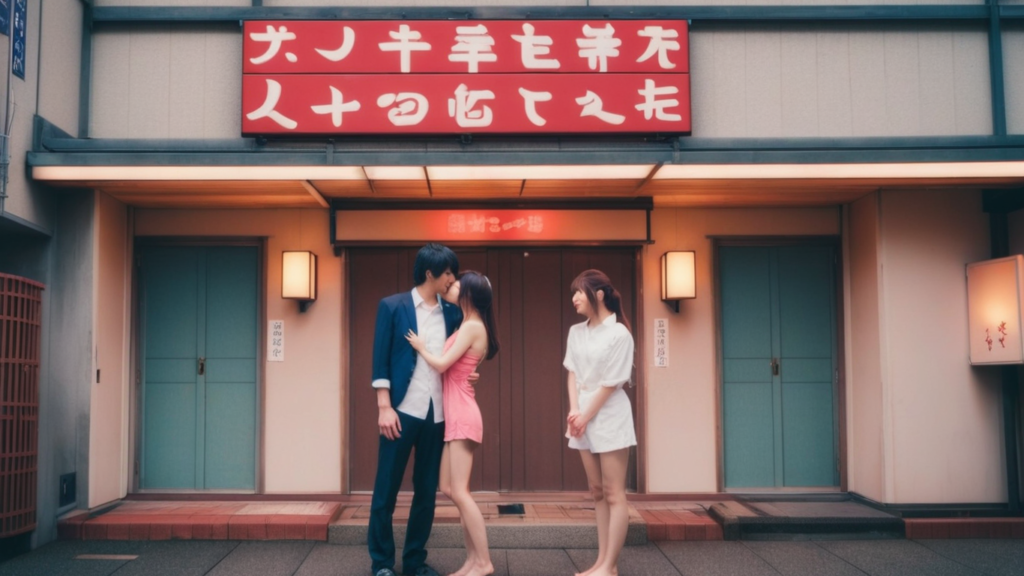What is a Love Hotel?

Love hotels, often referred to as “romance hotels” or “boutique hotels”, have carved out a unique niche in the hospitality industry. Originating in Japan, these establishments have gained popularity globally due to their distinctive features and the privacy they offer. In this comprehensive guide, we will delve into the world of love hotels, exploring their history, features, cultural significance, and the modern variations that have emerged.
The Origin and Evolution of Love Hotels
Love hotels first appeared in Japan in the early 20th century. Initially, these were simple establishments designed to provide couples with a discreet place to meet. The term “love hotel” comes from the Hotel Love in Osaka, which opened in 1968 and featured a rotating sign. This marked the beginning of the modern love hotel, characterized by themed rooms and hourly rates.
Over the decades, love hotels evolved significantly. During the economic boom of the 1980s, these hotels became more extravagant, incorporating a wide range of themes and amenities to attract couples. The concept quickly spread to other parts of Asia and eventually to Western countries, where it has been adapted to suit local tastes and cultural norms.
Key Features of Love Hotels
Privacy and Discretion
One of the primary attractions of love hotels is the emphasis on privacy. Many love hotels are designed with discrete entrances and exits to ensure that guests can come and go without encountering other patrons. In some establishments, automated check-in systems allow guests to book rooms and pay without interacting with staff, enhancing the sense of anonymity.
Themed Rooms
A hallmark of love hotels is their themed rooms. These can range from the whimsical to the luxurious, offering everything from tropical paradises and medieval castles to futuristic spaces and underwater worlds. The variety of themes allows couples to choose an environment that suits their mood or fantasy, adding an element of adventure to their stay.
Amenities and Services
Love hotels are equipped with an array of amenities designed to enhance the guest experience. Common features include:
- Jacuzzis and Hot Tubs: Many rooms come with private jacuzzis or hot tubs, providing a relaxing and intimate setting.
- Karaoke Machines: Popular in Japan, karaoke machines allow guests to enjoy singing together in the privacy of their room.
- Mood Lighting and Sound Systems: Advanced lighting and sound systems enable guests to create the perfect ambiance.
- Room Service: Unlike traditional hotels, love hotels often offer room service menus that include a variety of snacks, meals, and beverages.
Cultural Significance of Love Hotels
Japan: The Birthplace of Love Hotels
In Japan, love hotels serve a vital role due to the cultural emphasis on privacy and the often limited living space in urban areas. For many couples, especially young adults living with their parents, love hotels provide a much-needed private space. The industry is a significant part of the economy, with thousands of establishments across the country generating billions in revenue annually.
Global Spread and Adaptation
As the concept of love hotels spread worldwide, they were adapted to fit different cultural contexts. In South Korea, for example, “boutique motels” offer similar services and amenities but cater to a broader clientele, including families and business travelers. In the United States and Europe, boutique hotels have adopted some elements of love hotels, such as themed rooms and luxurious amenities, to appeal to couples looking for a unique and intimate experience.
Modern Variations and Innovations
Technology Integration
Modern love hotels have embraced technology to enhance the guest experience. Smart rooms equipped with automation systems allow guests to control lighting, temperature, and entertainment options with a simple touch. Virtual reality (VR) is also being introduced in some hotels, offering immersive experiences that can transport guests to different worlds.
Eco-Friendly Practices
As environmental awareness grows, many love hotels are adopting sustainable practices. This includes using energy-efficient lighting, sourcing eco-friendly toiletries, and implementing recycling programs. Some hotels are even designed with green architecture, incorporating natural materials and energy-saving technologies.
Wellness and Relaxation
To appeal to a broader audience, some love hotels are incorporating wellness amenities. These can include in-room massages, yoga mats, and access to fitness equipment. By offering a holistic approach to relaxation, these hotels attract guests seeking both intimacy and rejuvenation.
Choosing the Right Love Hotel
Location and Accessibility
When selecting a love hotel, consider its location and accessibility. Hotels located in central urban areas are often more convenient for quick getaways, while those in more secluded areas may offer a quieter, more private experience.
Room Options and Themes
Review the available room options and themes to find one that aligns with your preferences. Whether you’re looking for a simple, cozy room or an elaborate, themed suite, most love hotels provide detailed descriptions and photos on their websites.
Pricing and Packages
Love hotels typically offer hourly rates as well as overnight stays. Look for special packages that may include additional amenities or services at a discounted rate. Comparing prices and packages can help you get the best value for your stay.
Conclusion
Love hotels offer a unique and versatile lodging option that caters to couples seeking privacy, creativity, and luxury. From their origins in Japan to their global adaptations, these hotels provide a wide range of themed rooms, amenities, and services designed to enhance the romantic experience. As the industry continues to innovate with technology and sustainable practices, love hotels remain a fascinating and dynamic segment of the hospitality sector.





